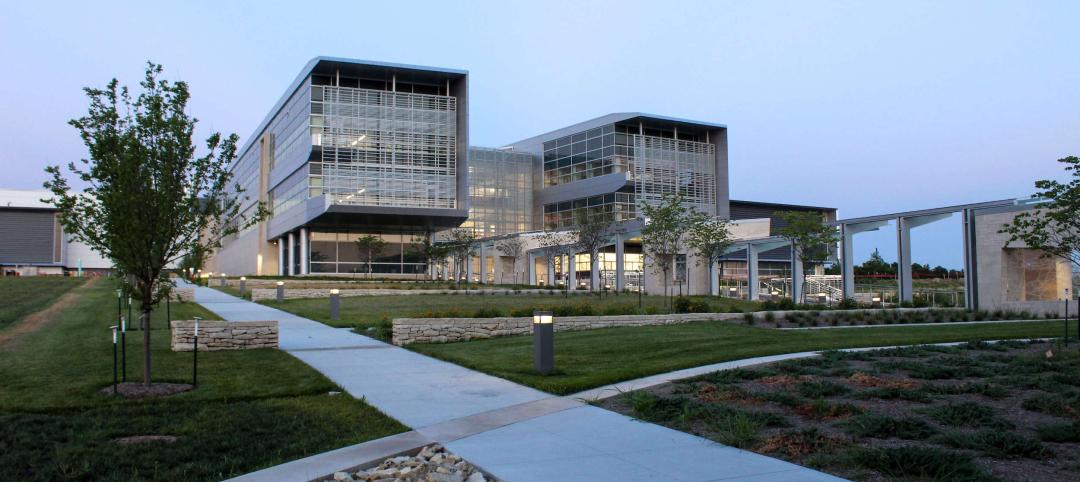CoreNet Global, a major international association for corporate real estate and workplace executives, has released a public policy statement advocating adoption of net-zero energy buildings: "We support the principle that smart and responsible energy policies and practices reduce corporate carbon footprints and greenhouse gas emissions, and we encourage our members' companies to drive energy efficiency to optimal levels with net-zero buildings as a top measure of long-term success."
The same statement calls on federal governments around the world to incentivize building owners, investors, and occupants who proactively reduce their carbon footprints through the use of green energy development and retrofits.
"Office, industrial, retail and other types of commercial real estate account for 40% of the world's annual energy consumption, making energy management and energy conservation socially responsible corporate practices," says CoreNet Global Chairman Jim Scannell, Senior Vice President of Administrative Services at The Travelers Companies, Inc.
The statement emphasizes "tangible benefits for companies and management teams which prioritize energy efficiency and take steps to reduce the carbon footprint. They will realize meaningful return on investment financially, socially and environmentally—as is consistent with the principles of the Triple Bottom Line accounting model."
CoreNet Global's Issues Advocacy Focus Group coordinated the wide-ranging statement based on extensive input from subject matter experts and the extensive, long-term documentation of best-in-class energy management practices from among its more than 7,900 members worldwide. It also marks the first time that corporate occupiers representing the demand side of the commercial real estate industry have spoken with a unified voice to advocate for public policy issues and corporate practices that impact business and society. In its 2012 Industry Leaders Opinion Poll, 90% of CRE executives who responded regard energy management as the most urgent issue facing the CRE industry.
"We're beginning to see the huge environmental, social and economic benefits that energy-independent facilities are offering," Scannell added.
A related finding from CoreNet Global's new Corporate Real Estate 2020 research initiative identifies one key enabler of the migration toward net-zero, predicting that buildings will become energy-producing "micro-grids" that can share electric power across public and private distribution networks.
Key action steps advocated for developers include articulating a clear and compelling vision for energy efficiency; working with energy suppliers and other pieces of the supply chain; and continuously measuring consumption and performance. Government programs advocated include tax deductions for energy-efficiency projects; a federal loan guarantee program for retrofits; state and local incentives that favor efficiency upgrades or retrofits; and updated building codes that reward companies for peak performance.
(http://bit.ly/UJe2Wb)
Related Stories
Multifamily Housing | Jul 11, 2023
Converting downtown office into multifamily residential: Let’s stop and think about this
Is the office-to-residential conversion really what’s best for our downtowns from a cultural, urban, economic perspective? Or is this silver bullet really a poison pill?
Adaptive Reuse | Jul 10, 2023
California updates building code for adaptive reuse of office, retail structures for housing
The California Building Standards Commission recently voted to make it easier to convert commercial properties to residential use. The commission adopted provisions of the International Existing Building Code (IEBC) that allow developers more flexibility for adaptive reuse of retail and office structures.
Laboratories | Jul 10, 2023
U.S. Department of Agriculture opens nation’s first biosafety level 4 containment facility for animal disease research
Replacing a seven-decade-old animal disease center, the National Bio and Agro-Defense Facility includes the nation’s first facility with biosafety containment capable of housing large livestock.
Market Data | Jul 5, 2023
Nonresidential construction spending decreased in May, its first drop in nearly a year
National nonresidential construction spending decreased 0.2% in May, according to an Associated Builders and Contractors analysis of data published today by the U.S. Census Bureau. On a seasonally adjusted annualized basis, nonresidential spending totaled $1.06 trillion.
Contractors | Jun 30, 2023
Construction industry task force aims for standardized carbon reporting
A newly formed Associated General Contractors of America (AGC) task force on decarbonization and carbon reporting will address the challenges around reporting and reducing carbon emissions in the construction industry.
Standards | Jun 30, 2023
New ASHRAE standard aims to reduce disease transmission risk in indoor spaces
ASHRAE Standard 241, Control of Infectious Aerosols establishes minimum requirements to reduce the risk of disease transmission by exposure to infectious aerosols in new buildings, existing buildings, and major renovations. Infectious aerosols are tiny, exhaled particles that can carry pathogens that cause infections or disease.
Mixed-Use | Jun 29, 2023
Massive work-live-play development opens in LA's new Cumulus District
VOX at Cumulus, a 14-acre work-live-play development in Los Angeles, offers 910 housing units and 100,000 sf of retail space anchored by a Whole Foods outlet. VOX, one of the largest mixed-use communities to open in the Los Angeles area, features apartments and townhomes with more than one dozen floorplans.
School Construction | Jun 29, 2023
K-12 school construction: 5 ways strong community relations can lead to success
When constructing a K-12 school, building positive relationships with the community—including students, parents, school staff and residents—is critical to the success of the project. Here are five ways Skanska puts the community first when building K-12 schools in the Pacific Northwest.
Multifamily Housing | Jun 28, 2023
Sutton Tower, an 80-story multifamily development, completes construction in Manhattan’s Midtown East
In Manhattan’s Midtown East, the construction of Sutton Tower, an 80-story residential building, has been completed. Located in the Sutton Place neighborhood, the tower offers 120 for-sale residences, with the first move-ins scheduled for this summer. The project was designed by Thomas Juul-Hansen and developed by Gamma Real Estate and JVP Management. Lendlease, the general contractor, started construction in 2018.
Apartments | Jun 27, 2023
Average U.S. apartment rent reached all-time high in May, at $1,716
Multifamily rents continued to increase through the first half of 2023, despite challenges for the sector and continuing economic uncertainty. But job growth has remained robust and new households keep forming, creating apartment demand and ongoing rent growth. The average U.S. apartment rent reached an all-time high of $1,716 in May.

















